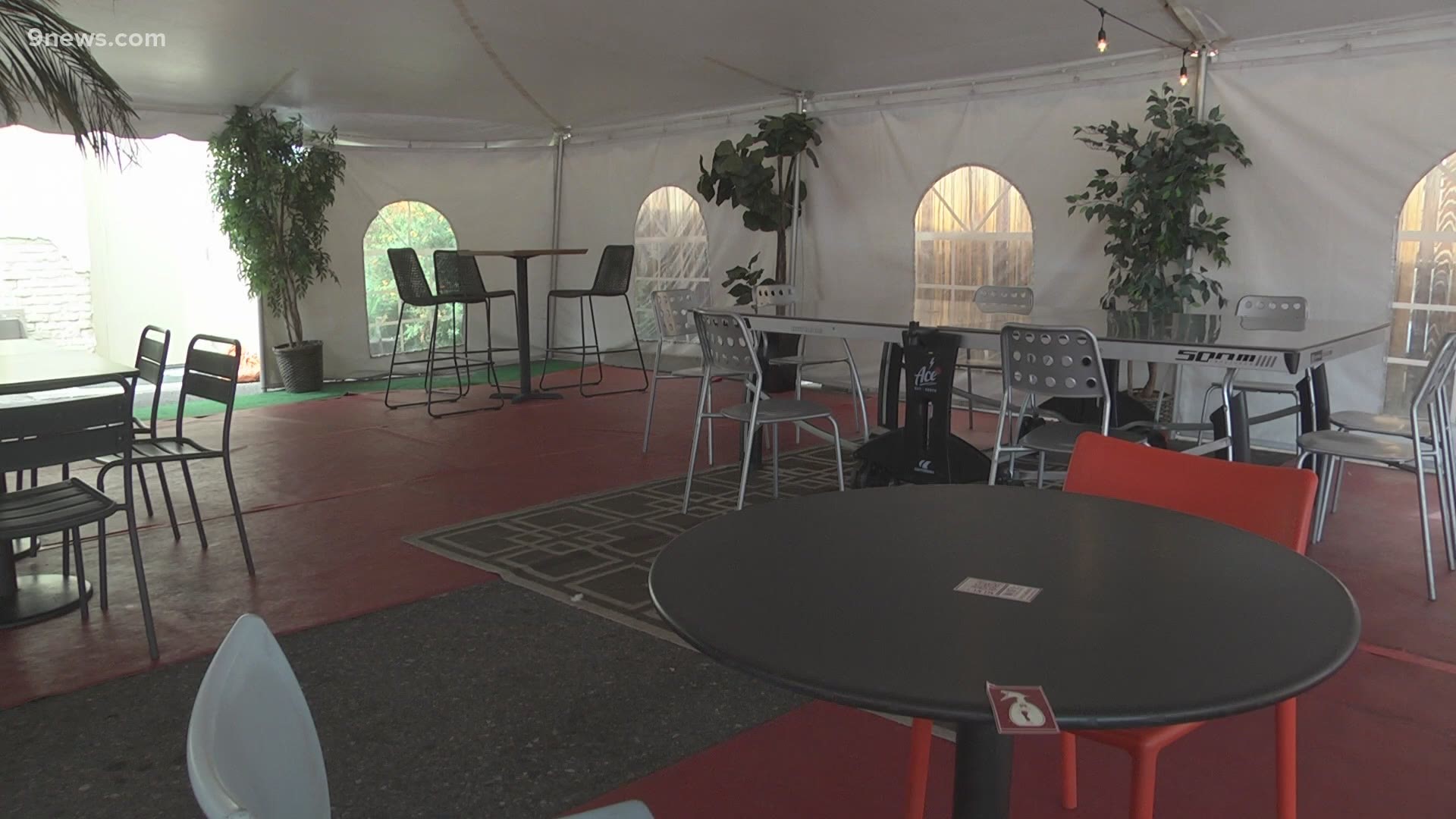DENVER — As colder temperatures arrive in Colorado, many restaurants that expanded patios as a way to reopen during COVID-19 are wondering what business will look like during the winter months.
"Cold weather is just around the corner. What do we do next?" Peter Hoglund, Chief of Operations for Frasca Hospitality Group, asked.
Like so many other restaurant groups, Frasca found success over the summer by working with cities like Denver and Boulder to expand patio seating.
As the cold approaches, Hoglund wonders what that will look like moving forward, particularly because the four restaurants within the group don't have large patios on their own.
The Colorado Department of Public Health and Environment (CPDHE) on Thursday released guidance in an effort to help restaurants safely accommodate customers outdoors in the upcoming colder months by using temporary structures or pop-ups.
Depending on the construction of spaces, and the available ventilation, CDPHE said spaces will be considered either an indoor or outdoor setting and must follow the appropriate capacity requirements. Click/tap here to see the different classifications for temporary outdoor structures.
The state and local health departments make determinations based on the typical level of ventilation for the given setting.
Settings that provide air flow comparable to levels of being outdoors, allowing the virus to disperse rapidly and move out of the space, are considered outdoor settings, according to CDPHE.
If a setting does not have adequate ventilation, the air will become trapped inside and the virus will recirculate and become more concentrated. CDPHE said those spaces are considered indoor settings.
CDPHE said capacity allowances at each restaurant or event should follow levels for indoor and outdoor settings as listed in Colorado’s dial framework.
In the document, CDPHE describes a "wall" as any material type that can reasonably restrict aerosols from passing through. A fabric sheet curtain and a tarp or plastic barrier are considered a wall for that reason, according to CDPHE.
CDPHE said restaurants should also continue to follow other best practices, including disinfecting, wearing masks and social distancing.
"At the end of the day it’s all about creating a safe environment and that responsibility is on us. If our guests aren't feeling comfortable and safe, they aren't going to dine here regardless of what the guidelines say," Josh Wolkon, owner of Secret Sauce Food and Beverage, told 9NEWS.
Wolkon owns Steuben's and Ace in uptown Denver, both of which had large patios before the pandemic. "Between the two, we’re going to be alright," he said.
While Wolkon still has questions about the state's guidance, he is making plans to embrace Colorado's climate. "There’ll be fire pits and heat lamps. We’re going to do our best to make it just a fun and exciting winter and a different way to go about dining out outside," Wolkon told 9NEWS.
At the same time, Peter Hoglund of Frasca Hospitality Group is having to weigh his investment with the uncertainty of the future.
"We have to recognize something isn’t going to be a long-term solution so we can’t spend all of our resources on it," he said.
An eternal optimist himself, Hoglund expects to find success in the winter, as he did in the summer, by working with cities to find solutions.
"It’s about us really not being tethered to anything in the past. We have to reimagine the programming the offerings that we’re providing," Hoglund told 9NEWS.
SUGGESTED VIDEOS: Local stories from 9NEWS

